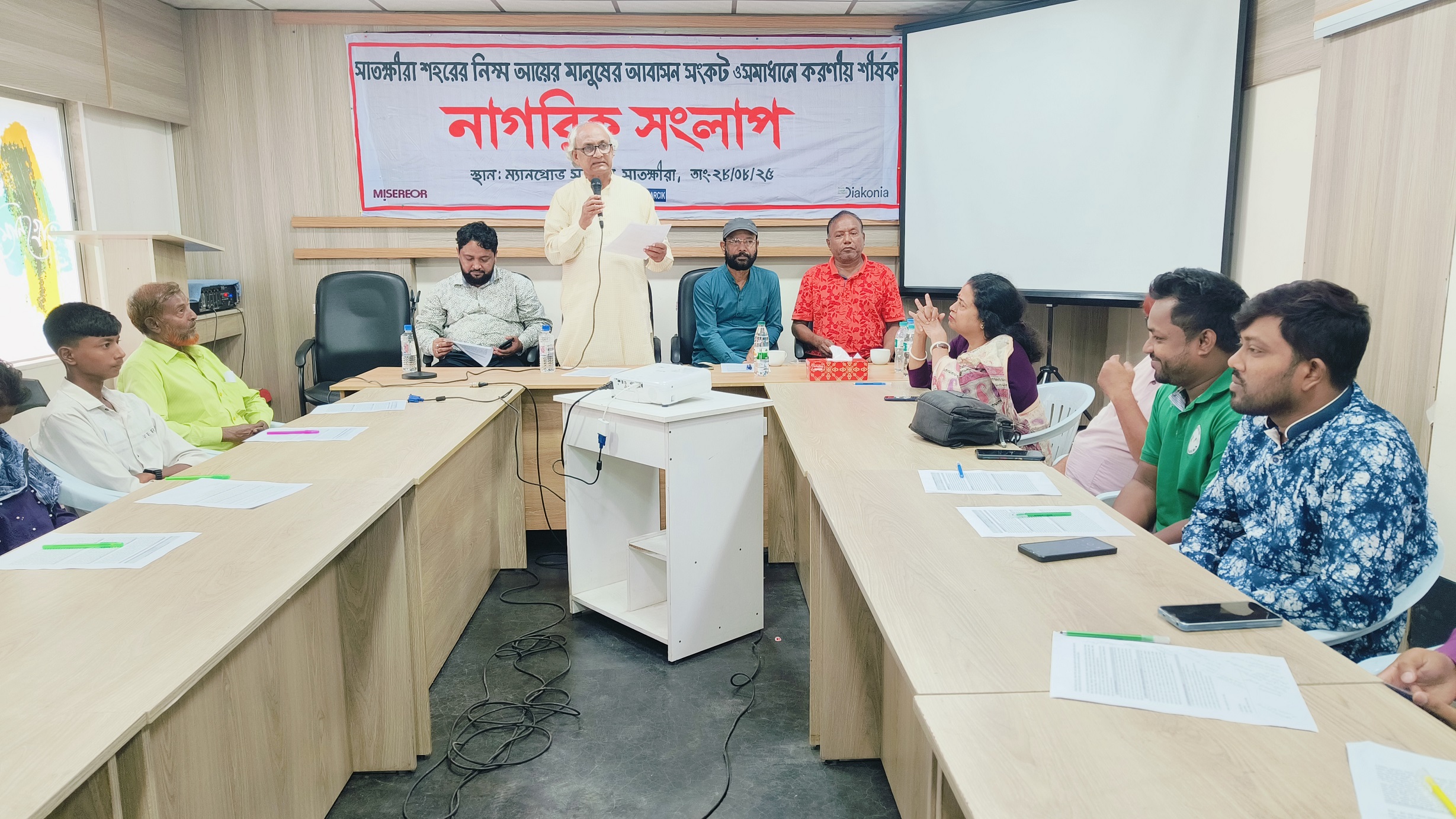By Gazi Mahida Mizan from Satkhira
“We build the city, but there’s no place for us in it”, this painful reality echoes in the voices of the urban poor in Satkhira. Rickshaw-pullers, day laborers, and domestic workers keep the city running, yet live in tin shacks where rainwater floods their rooms, winters are freezing, and summers unbearable.
A citizen dialogue titled “Housing Crisis of the Urban Poor and Way Forward” was held at the Mangrove Hall in Satkhira recently, organized by BARCIK. Presided over by environmental activist Principal (Retd.) Ashek Elahi, the event presented stark findings: Satkhira Municipality has 47 listed slums, sheltering nearly 50,000 people, one in every four residents and most of whom are climate refugees. Yet they remain excluded from urban development planning.

Elderly Zobeda Bibi, living with her disabled daughter in a roadside shack, wondered where to go when rains flood her home. Domestic worker Hafiza Begum cooks all day for others but often returns to an empty pot, unable to afford schooling or healthcare for her children.
Participants said that cyclones, river erosion, rising salinity, and loss of livelihoods push rural families into unsafe, overcrowded slums lacking clean water, electricity, sanitation, education, and health services. Every seasonal change brings new disasters for them.
The dialogue highlighted that despite constitutional rights, SDG commitments, and global declarations on inclusive, climate-resilient cities, implementation is absent. Without addressing the poor, no development can be sustainable.
The participants placed some recommendations that included: ensuring safe, eco-friendly, disaster-resilient housing; guaranteeing access to public services for slum residents; subsidized water, electricity, and fuel; education, training, and healthcare; and year-round access to essential goods at fair prices.
Community leaders, rights activists, journalists, and local officials joined the discussion, all stressing that climate refugees must be included in urban planning to secure a just and sustainable future.
